Hostel Moku-Moku in Awaji, Osaka - Rooted in the Local Community

Hostel Moku-Moku opened in April, 2016. It is located at Awaji, Osaka, a short distance from the city center, and comes with a public bath that can be used by guests free of charge.
Awaji is a town in the downtown area of Osaka. Surprising for its location near the city center, it is an old-fashioned residential area, without any skyscrapers.
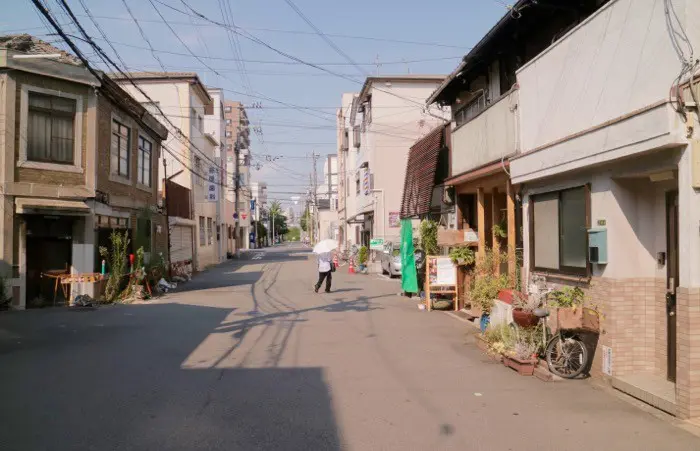
This article is about Hostel Moku-Moku, which opened in April, 2016, in this nostalgic area.
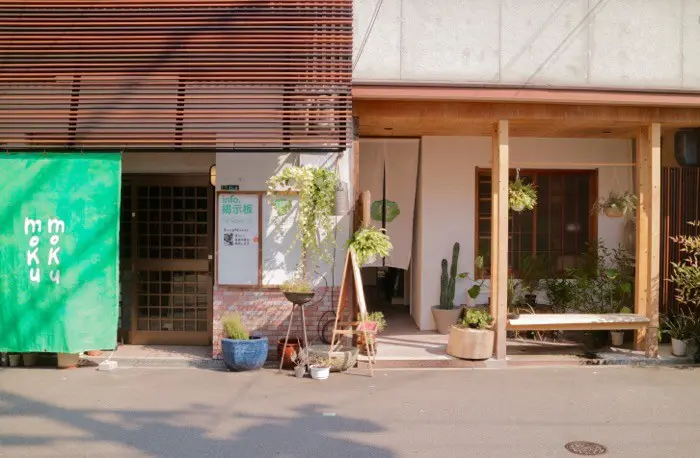
The hostel used to be a row house divided into three units, built about 60 years ago. The white noren on the right marks the entrance.
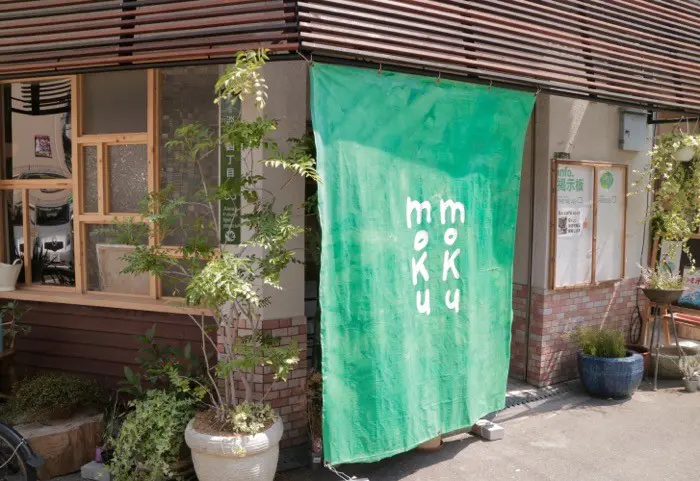
The event space for the guests and the local residents is located on the left. In the evening, it turns into a community kitchen called mogumogu.
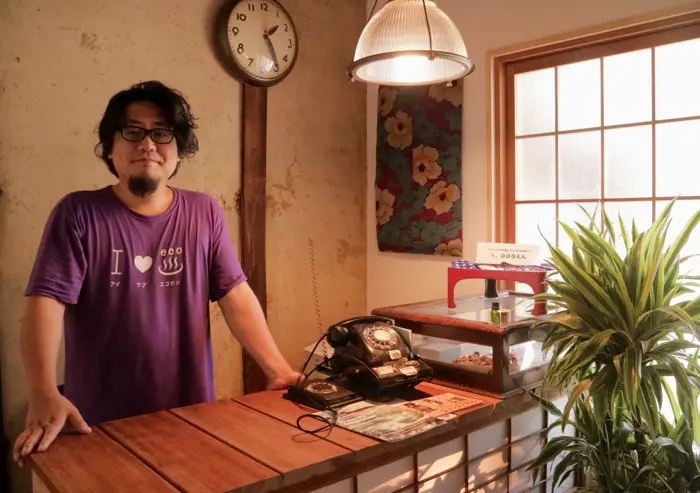
This is the hostel owner, Mr. Morikawa, greeting the guests at the retro-style counter. He will answer any of your questions about sightseeing in Osaka.
Rooms and Other Facilities
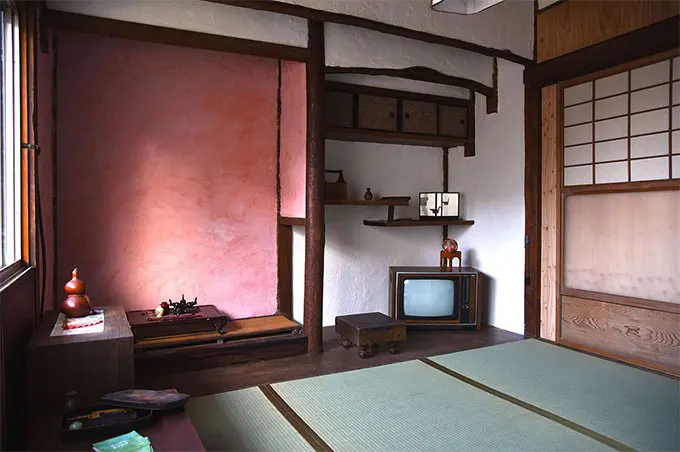
Photographs courtesy of Hostel Moku-Moku
There are two private rooms. The room charge for the Japanese-style room Sakura is 7,000 yen including tax for one person, and 10,000 yen for two.
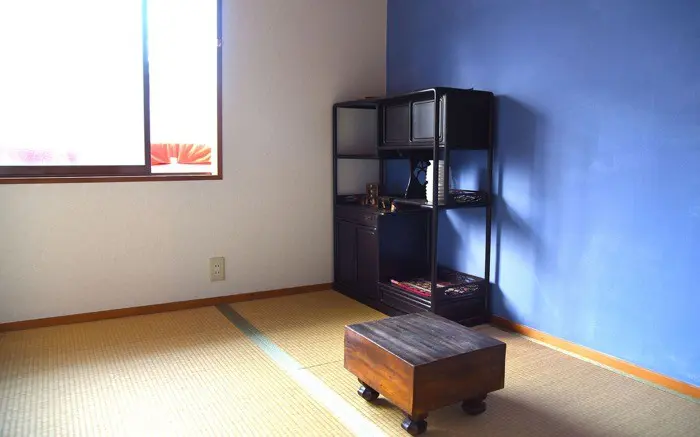
Photograph courtesy of Hostel Moku-Moku
The room charge for the blue-walled Fuji room is 5,000 yen for one person, and 10,000 yen for two.
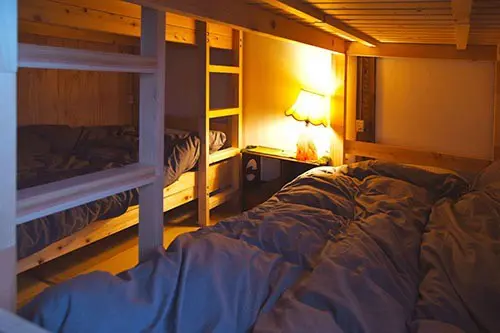
Photograph courtesy of Hostel Moku-Moku
There are also two dormitory-type rooms. The room charge for Hinoki, which is for women only, is 3,800 yen per night. The charge for Sugi, for both women and men, is 3,500 yen per night. Besides the rooms, there is a kitchen, lavatory and a shower room which the guests can use.
A Hostel with a Public Bath
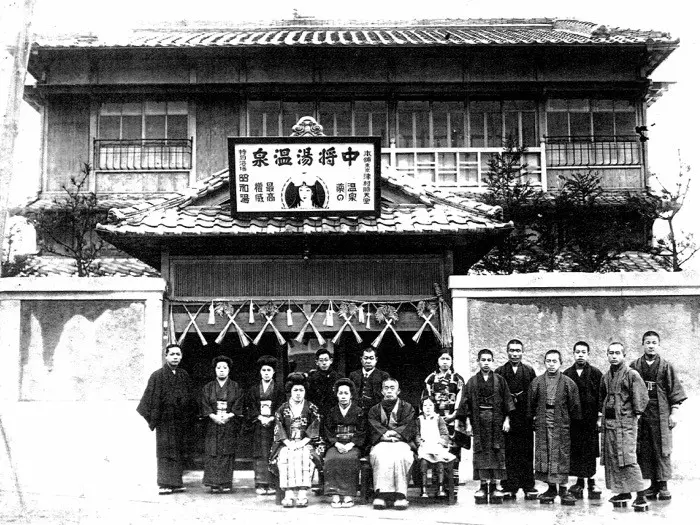
The Showayu in its early days, about 90 years ago. Photograph courtesy of Hostel Moku-Moku
The Moku-Moku guests can use the Showayu, a sento (Japanese public bath) nearby built about 90 years ago, whenever they like, for free. This privilege is made possible by the fact that Mr. Morikawa's older brother is the fourth generation owner of this sento.
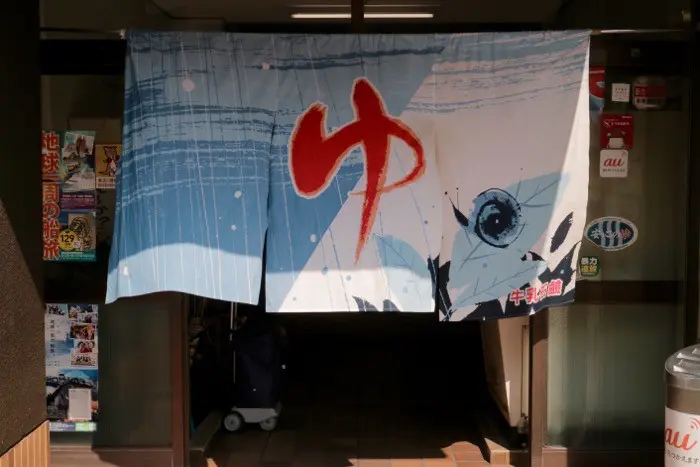
This is the entrance to Showayu. Take off your shoes and put them in the locker called getabako. Men enter to the right, while women to the left.
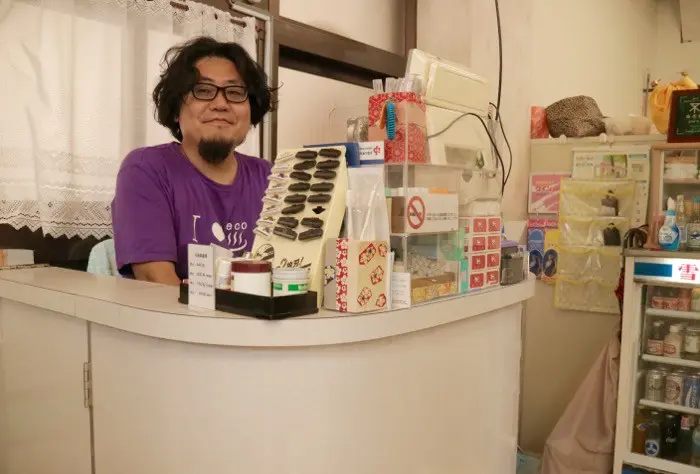
Usually, the customers pay at the reception area called bandai, but the hostel guests can use the sento for free. They can also borrow a small towel for free, and a bath towel for 50 yen. The changing room cannot be seen from the bandai, so don't worry.
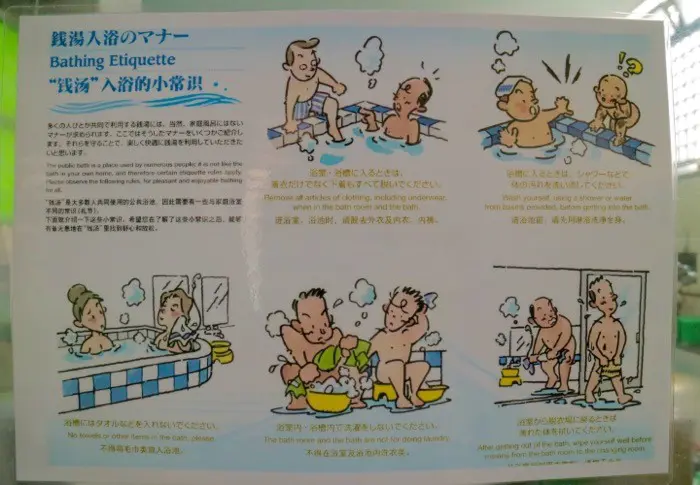
Take your clothes off, and put them in a basket. There is are instructions in English about the bathing etiquette at the bathroom entrance, so be sure to read them.
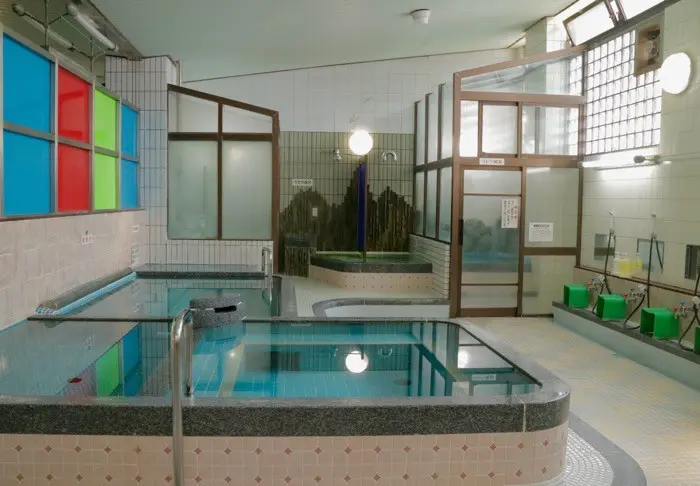
The guests can also use the shampoos and body soaps at the sento for free. Don't forget to wash yourself before getting into the bathtub.
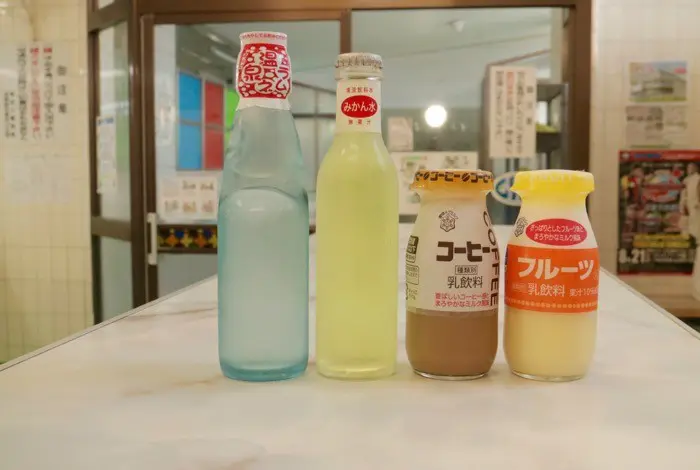
After the bath, you can order an old-fashioned bottled drink. The drinks shown in the photograph, from left to right, are lamune (lemon cider), orange water, coffee-flavored milk and fruit-flavored milk. The owner told us about a touching episode at the sento. "A group of 11 people from China came to stay for seven nights. There was a small misunderstanding between a woman in that group and a local resident, about how to use the sento. We became worried, but before the group went back to China, they made up, and became friendly enough to wash each other's back."
A Hostel Rooted in the Local Community
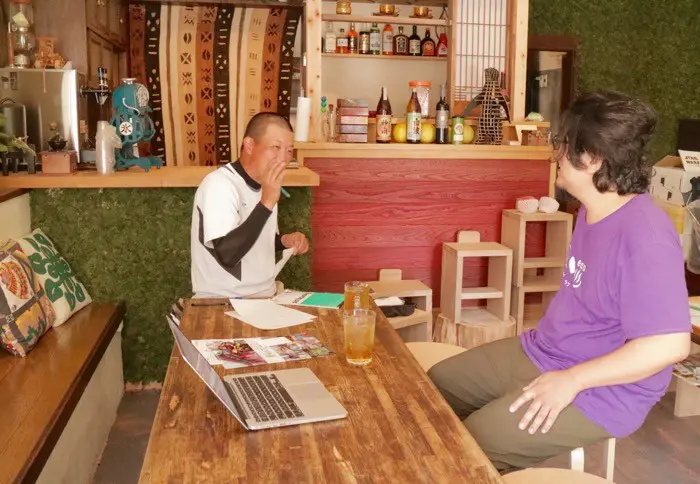
Moku-Moku has a firm root in the local community. The local residents and friends of the owner cooperated in building the furniture and the interior space. In the evening, the space shown in the photograph turns into a community kitchen with a cozy atmosphere, called mogumogu. Mr. Morikawa said, "Something ordinary for the Japanese may be extraordinary for visitors from abroad." He is a relaxed, warm person, and that is one of the reasons why many guests decide to visit Moku-Moku again.
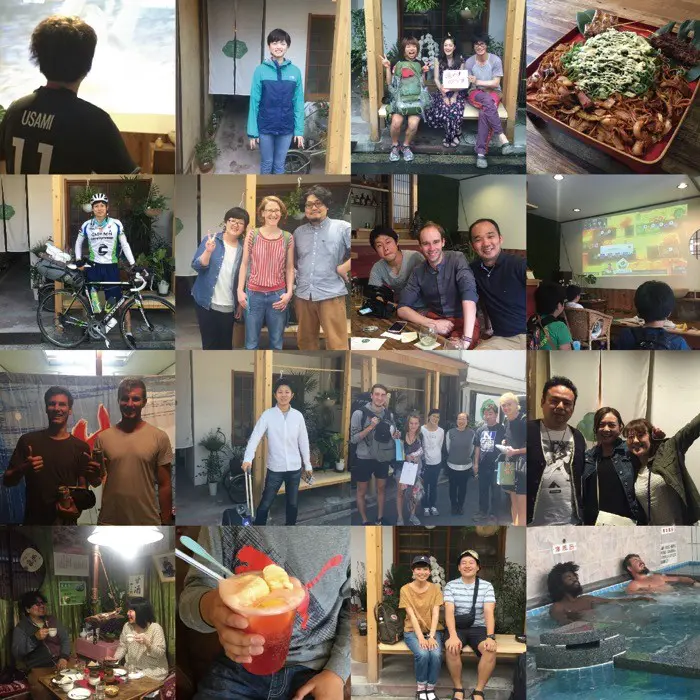
Photograph courtesy of Hostel Moku-Moku
The hostel has been open for about four months, and a large number of guests have already come to stay from all over the world. "Come to Awaji, where you can experience the Japanese bath, and the everyday life of the Osaka people living here," is the message from Mr. Morikawa. The Hostel Moku-Moku offers a chance to get to know the local residents, so it's worth a visit.
A Present for MATCHA Readers!
If you visit the hostel, tell the staff that you have read this MATCHA article. The prize will be matcha tea for the first 100 guests. If you're lucky to make the cut, enjoy the bittersweet flavor of this Japanese tea.
日本文化、特に絵画や工芸品が好き。福岡、京都、大阪、ベルギー、アメリカを経て現在は神戸在住。座右の銘は「住めば都」。




































![[2026 Latest] Dogo Onsen and Matsuyama Castle 1-night, 2-day trip by express bus from OCAT](https://resources.matcha-jp.com/resize/720x2000/2026/02/02-257354.webp)
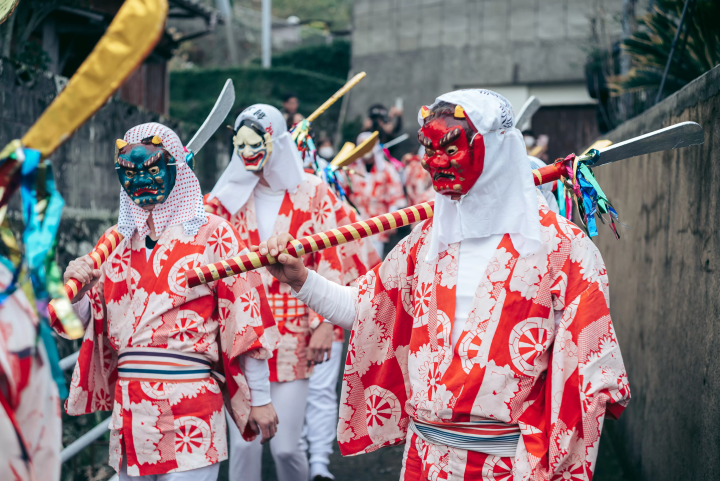

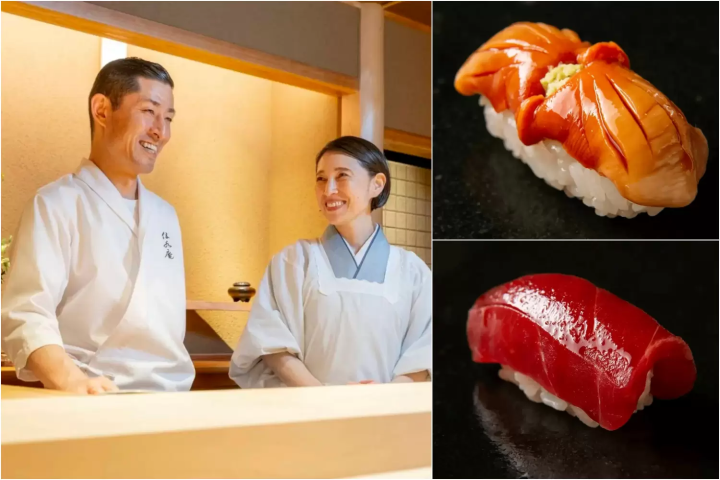
![[No need to worry!] A guide to buying entertainment tickets in Japan](https://resources.matcha-jp.com/resize/720x2000/2025/04/21-231654.webp)